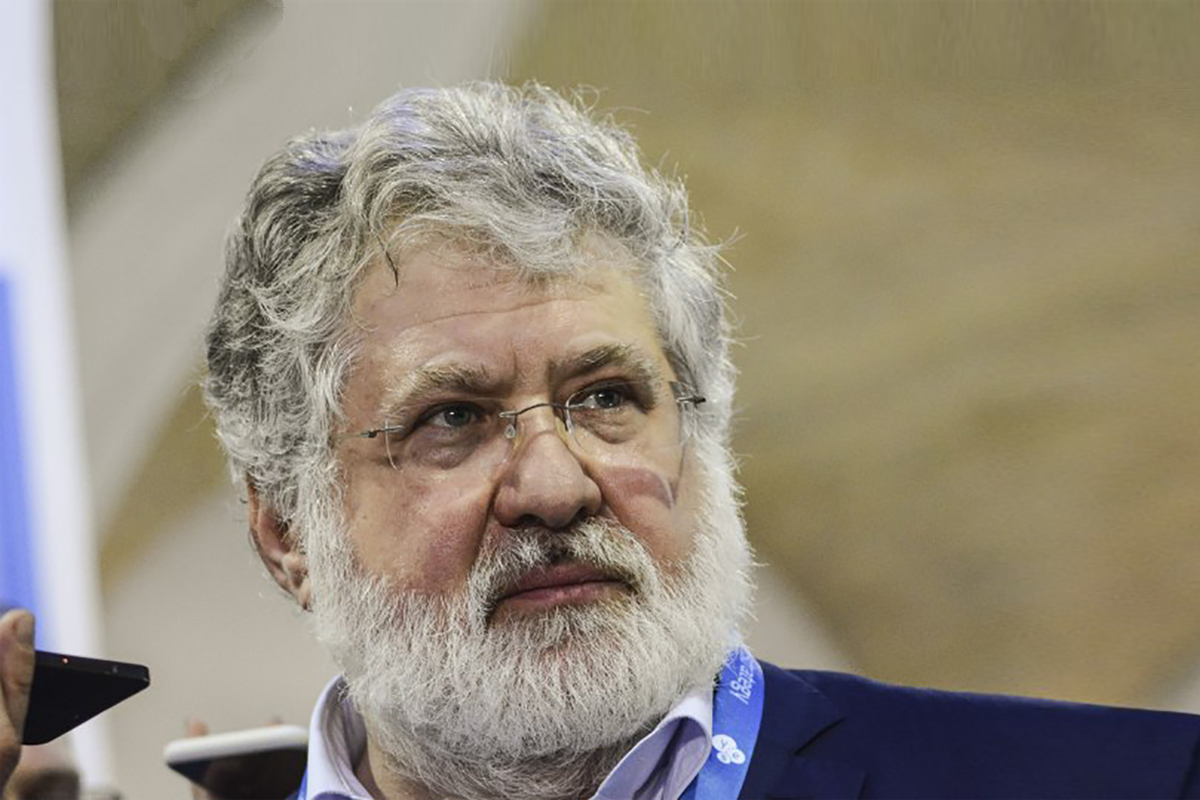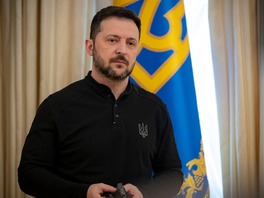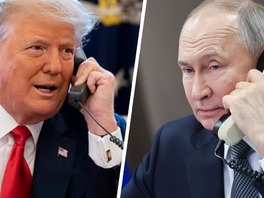After Volodymyr Zelensky won the presidential elections, Igor Kolomoisky was considered the new government’s main beneficiary. The oligarch does indeed have a trump card in the form of loyal MPs and several members of the government, but his desire to influence politics is restricted by Volodymyr Zelensky. Zelensky seeks to strike a balance between the interests of different stakeholders. The president’s main objective is reducing the influence of oligarchs on politics by setting the same game rules for everyone.
Zelensky's victory – a chance for Kolomoisky?
9 months ago, after nearly three years of “exile”, the disgraced oligarch Igor Kolomoisky returned to his homeland. Since then, the media, politicians, and experts have attributed to him a huge influence on the political and economic processes in Ukraine. However, the oligarch has not been able to regain or compensate for the nationalized bank. Andriy Bogdan, who is closely associated with him, was removed from his position as Zelensky’s chief of staff, and Ukraine’s Security Service searched Kolomoisky’s TV channel. On the other hand, “Ukrnafta”, which is under the oligarch’s control, reached an understanding with “Naftogaz” on tax debts. Kolomoisky strengthened and expanded his influence on the oil products market and gained loyal management at Centrenergo. Thus, had Kolomoisky attained the forecasted privilege or is his struggle for influence merely unfolding?
Starting from the end of 2016, Kolomoisky has had a political and business bad streak. At first, Ukraine’s Cabinet of Ministers nationalized Privatbank. Then, the High Court of Justice in England froze nearly 2 billion USD in the oligarch's assets due to money laundering allegations. Later, in the spring of 2019, the FBI initiated an investigation into Kolomoisky’s alleged money laundering in the United States. The most recent investigation forced him to move from Switzerland to Israel, then coming back to Ukraine. The oligarch was only able to return to his homeland due to Volodymyr Zelensky’s victory in presidential elections. As Kolomoisky’s relations with Petro Poroshenko clearly did not work out, he used his resources to support Zelensky’s campaign. Thus, the reboot of power in Ukraine served as a chance for Kolomoisky to restore his lost economic and political positions.
Political influence
The demonization of Kolomoisky's influence on Zelensky started immediately after the latter announced his to run. Some particularly active supporters of Petro Poroshenko have spread this narrative, trying to create a public image of Zelensky being a Kolomoisky-controlled puppet. The appointment of “Kolomoisky's lawyer” Andriy Bogdan as the president’s chief of staff was used to further the perception of the oligarch's exclusive influence on the new government. Then, during the parliamentary elections, several dozen people associated with Kolomoisky were included in the “Servant of the People” party lists and among majority candidates. In addition, representatives of the “UKROP” party were involved in organizing the election campaign in many regions, with Kolomoisky’s business partner, Igor Palytsya, coordinating “Servant of the People” campaigns in a number of majority constituencies.
At the same time, Kolomoisky wasn’t betting merely on "his" people in “Servant of the People” party or majority lists. The oligarch also actively supported Yulia Tymoshenko's “Batkivshchyna”, as well as several unaffiliated majority candidates. However, such a diversification did not lead to the results Kolomoisky sought. Some of his “Servant of the People” henchmen were quick to start playing their own games, focusing more on the President’s Office rather than on Kolomoisky (for example, Oleksandr Tkachenko and some of the “UKROP” members). Ihor Palytsya managed to organize a parliamentary group called “For the future”, yet every issue has to be agreed on separately with its members. That is, neither Palytsya nor Kolomoisky has an exclusive influence on these MPs, as each of them pursues their own interests. There is a similar situation in Yulia Tymoshenko's “Batkivshchyna”, where, in addition to Kolomoisky people, there are MPs affiliated with Akhmetov, Pinchuk, and Lyovchkin.
 Yulia Tymoshenko
Yulia Tymoshenko
In addition, Bogdan, despite maintaining communications with Kolomoisky, did not become the exclusive lobbyist of the oligarch’s interests. Since he assumed his position as Zelensky’s chief of staff, Bogdan has been more concerned with satisfying his ambitions. Nevertheless, occasionally their interests coincided, and then the Head of the Presidential Office facilitated a mutually beneficial outcome for both parties. In any case, Bogdan’s removal means Kolomoisky`s channels of communication with Zelensky have narrowed. The first Assistant to the President Sergiy Shefir will now act as the main communicator between the two, likely serving as a constraint on the oligarch's ambitions. Currently, Kolomoisky also has little influence on the Prosecutor General’s Office and Ukraine’s Security Service. After the associated with Kolomoisky prosecutor Konstantin Kulik had been fired from the Prosecutor General’s Office, the oligarch focused on criticizing Prosecutor General Ruslan Ryaboshapka. A “Servant of the People” MP and former 1+1 journalist Oleksandr Dubinsky has become a mouthpiece on the account – as well as on a series of other matters. Kolomoisky also failed to get Kulik hired by the Security Service of Ukraine. Nevertheless, the oligarch maintains a rather friendly relationship with the Minister of Internal Affairs Arsen Avakov.
Despite not having a controlling position in the current government structure, Kolomoisky continues to have important resources, such as 1 + 1 TV channel, funds, control over Ukrainian industries, and personal media presence. His interviews and statements always cause strong reactions, both inside and outside Ukraine. For instance, what’s worth Kolomoisky’s statement that Ukraine should turn away from the West and reconcile with the Russian Federation, with Russian funding potentially replacing IMF loans.
Igor Kolomoisky’s world of chaos
As described earlier, Igor Kolomoisky’s political influence is far from. He currently competes for influence with other oligarchs and doesn’t have privilege over them. This, in turn, drives the oligarch to create an image of his influence – including making a plethora of high-profile statements. In order to demonstrate his importance, Kolomoisky sews crises and chaos. In particular, he undermines the situation within the "Servant of the People" party and the government, especially its economic bloc. He also sponsors an "anti-Soros" campaign, discredits the cooperation with the IMF, flirts with Trump regarding the Biden case, as well as tries to establish relations with the Russian Federation and lobby Moscow’s interests in Ukraine. Additionally, Kolomoisky finances street protests (against the board of Ukraine’s National Bank, against the current management of Privatbank, against the opening of the land market, etc.), criticizes the Prosecutor General’s Office and leads a war against the director of NABU Artem Sytnyk.
However, one can see a decrease in Kolomoisky’s – at least public – activity in regards to one matter. The protests under the National Bank and some branches of the Privatbank have stopped, and the oligarch himself hasn’t made any loud statements about the IMF for several months. This may be because the original draft law “On banks and banking activity” and “On the system of deposit guarantees”, which was introduced on December 11 of 2019, has undergone significant and positive changes for Kolomoisky. Practically, the MPs might vote on a compromise version of the bill. The key changes lie in the fact that, while the bank remains state-owned, former owners are more likely to be compensated in case NBU's actions are ruled illegal (i.e., a new version of the bill provides for a clear compensation mechanism).
 National Bank
National Bank
IMF, in turn, doesn’t agree with the draft law in its current form, so the work continues. Moreover, the Parliament will not vote on the bill at least until April, as its work is blocked by consideration of the law on the land market, which is also highly important for cooperation with the IMF. Given the unpopularity of the land market reform among Ukrainian society, and consequently the complexity of gathering enough votes to pass it, it can become an effective tool for making deals with Kolomoisky. The oligarch has an influence on about 30 "Servant of the People" MPs and part of the "For the future" parliamentary group. In addition, it should be borne in mind that this bill is a useful tool for Kolomoisky in his fight against the IMF.
Kolomoisky’s business victories
As of now, Kolomoisky’s business situation appears better than his political positions. In September of 2019, he gained influence over the state-owned company Centrenergo, which is one of the largest modern enterprises of the electric power industry. It is also the only state-owned power generation company in Ukraine (the company operates 23 units at TPPs with a total installed capacity of 7690 MW). Kolomoisky, in turn, gained influence on this company after his partner, Volodymyr Potapenko, headed the enterprise. It should be noted that Kolomoisky’s factories bought up to 85% of the electricity produced by Centrenergo at significantly lower prices. In addition, Ukrnafta, controlled by the Kolomoisky Group, won a big tender for the supply of large volumes of heavy fuel oil to Centrenergo. Given that this situation completely suits the oligarch, he strongly opposes the privatization of the enterprise. Oleksiy Goncharuk, however, states that it is a top priority for his government.
The oligarch has also strengthened his positions in the import of oil products and transshipment. In particular, he stopped the Prykarpatzakhidtrans pipeline (commonly known as the Medvedchuk Pipeline) with the introduction of a 4% special duty. Kolomoisky controlled companies have significantly increased diesel imports by sea and became one of the five largest importers. In addition, the Privat Group controls the largest oil refineries in Odesa and Chornomorsk. The transshipment at these enterprises has increased tenfold. At the same time, various transshipment complexes in Mykolaiv, Kherson and the South are constantly experiencing various problems. Another Kolomoisky’s victory is receiving contracts for the supply of diesel fuel to Ukrzaliznytsia.
Another important moment for Kolomoisky’s economic benefits was the recent agreement between Naftogaz and the state-owned company Ukrnafta, which he controls. They have long been in litigation. Ukrnafta has a large tax debt, approximately 30 billion UAH. At the same time, Ukrnafta was demanding from Naftogaz money for gas, which the company supplied to Naftogaz in 2005. Ukrnafta did not want to sell gas to the public at a special price, demanding paying market value for the "disputed gas". Under the terms of the agreement, Naftogaz will transfer 15 billion UAH from the budget to Ukrnafta for the “disputed gas”, then paying another 14.6 billion UAH in advance for Ukrnafta’s services. In turn, Ukrnafta has to repay its tax debt with all this money. Thus, Ukrnafta's debt will be paid from the state budget.
 Naftogaz
Naftogaz
It is also worth noting that Igor Kolomoisky and Gennady Bogolyubov became the owners of two weapons and ammunition companies. This correlates to Kolomoisky’s desire to set up private military companies in Ukraine. MP Vasilevska-Smaglyuk (Kolomoisky group) registered a corresponding bill on private military companies in the Verkhovna Rada.
Thus, Igor Kolomoisky’s situation has improved since Volodymyr Zelensky came to power. However, the long-speculated influence that the oligarch assumingly had on Zelensky has never become a reality. Zelensky tries to strike a balance between all FIGs in order not to create exclusive conditions for any specific oligarch.
Kolomoisky undoubtedly received certain – mostly business – gains after his return to Ukraine, yet he never obtained a monopoly influence among all Ukrainian oligarchs. That’s why the oligarch continues to wage war on several fronts at once: he seeks to gain greater influence in the Verkhovna Rada and the “Servant of the People” faction, obtain compensation for the nationalization of Privatbank, reach an understanding with the Trump administration and Russia, as well as to reduce the IMF's influence in Ukraine and secure profitable markets. On all these accounts, Kolomoisky’s success directly depends on President Zelensky’s position. Zelensky, in turn, currently has no conflict with any of the oligarchs and generally tries to balance their influence on political and economic processes in the country.
The Ukrainian government and Volodymyr Zelensky personally face a crucial task of reducing the influence Ukrainian oligarchs have on politics. Ukraine’s independent history can be easily divided into periods of a particular oligarch’s – in partnership with corresponding authorities – "reign". Representatives of the Ukrainian oligarchy serve as the main obstacle to the implementation of real reforms in the country. They are also the main beneficiaries of high-level corruption. Volodymyr Zelensky, in turn, is currently sending a message to Ukrainian oligarchs: you can affect business but not politics. The establishment of clear and mandatory rules for all players should reinforce Zelensky’s tactics. All Ukrainian businessmen have to work within the framework of the legislation, investing in the modernization of production and increasing their competitiveness. This is a highly difficult task for the Ukrainian president. Ukrainian society and international partners should encourage Zelensky to pursue such a policy on oligarchs and their influence. Only with the consolidation of all interested parties – both within the country and beyond – does Ukraine have a fair chance at breaking free from the oligarchy and implementing true reforms.





